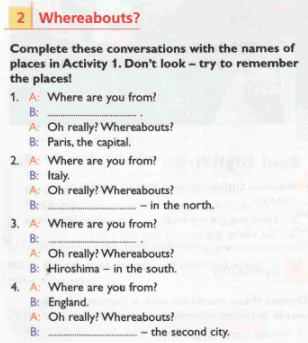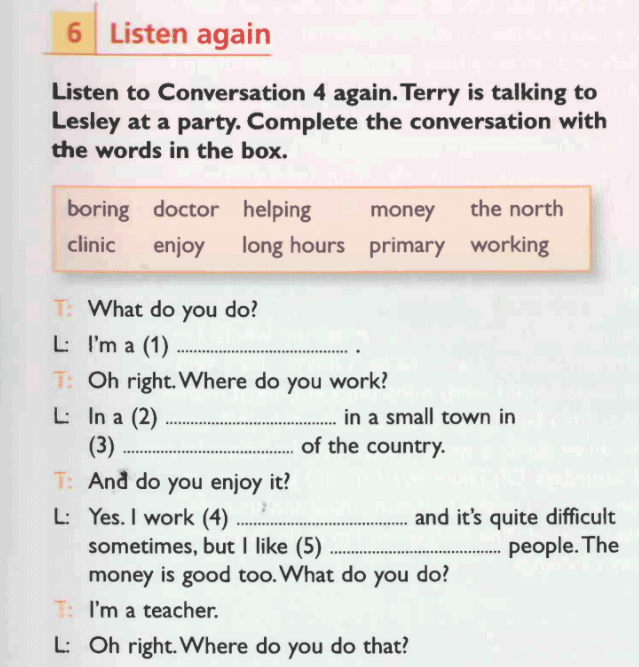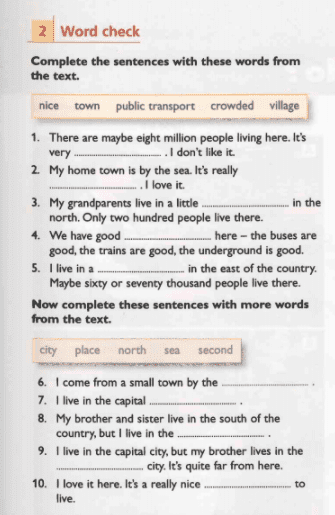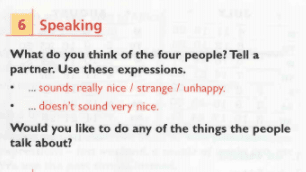What’s the best EFL coursebook for elementary students?
The burning question this time around is: What’s the best EFL coursebook for elementary students? Well, it may be an oldie but a goodie, but I have to plump for Innovations Elementary by Hugh Dellar and Andrew Walkley.
This post covers the values and beliefs of the authors, most notably those of Hugh Dellar. Then, I assess how useful the exercises and reading and listening texts are in the coursebook. Finally, I analyse how the authors have cleverly spaced out the same lexis and grammar points across different units.
TEACHER BELIEFS - WE’RE IN THE SAME BOAT HUGH
One of the reasons I wouldn’t be able to use other popular EFL coursebooks again, such as English File and Headway, is because they continue to stick to a structural-grammatical syllabus. This is the fanciful idea that language learning occurs in a perfect, linear fashion whereby English tenses and aspects appear in a set order according to their perceived difficulty. Of course, language learning doesn’t work like that at all. What is more, instructors and students should ignore the vast majority of English tenses, or aspects, because native speakers rarely use them in normal conversation.
Mr Dellar is his own man, with his own beliefs, and a unique approach to instruction. Yet, it was Michael Lewis’s Lexical Approach which influenced Hugh the most. Hugh’s journey certainly resonates with me. I recently wrote about how my beliefs as an EFL teacher have evolved naturally over the years. I went from drilling tenses into students in language schools to my own form of lexical teaching.
Here’s a summary of the main points of the Lexical Approach, all of which bless the pages of the Innovations coursebook series:
- Much language consists of multi-word ‘chunks’
- Grammar as structure is subordinate to lexis
- Receptive skills, particularly listening, are favoured over writing and traditional gap-fill tasks
- The same words and collocations should pop up at regular intervals in materials
the best EFL coursebook for elementary students - THE NATURAL-SOUNDING READING AND LISTENING EXTRACTS ARE A JOY TO BEHOLD
One of the reasons I think Innovations Elementary is the best EFL coursebook for elementary students is because the texts are relevant to most people’s lives.
In the first unit, there is an unaggressive action plan. The agenda is to acquaint students with the verb ‘be’, adverbs of frequency and the present simple. These grammar points appear in a piece of reading called ‘People I know’. In the short text below, six people reveal some basic information about their home and working lives. The accounts also come with listening files:

It's important to master the present simple because many of our utterances in everyday conversation are in this aspect.
As can be seen in the above text, there is a healthy scattering of sentences and clauses in the present simple:
- I live in Edinburgh
- I live with my wife and my two kids
- She works at Edinburgh University
- I usually email him every day
I'm very familiar with other resources, texts and coursebooks for beginners and elementary learners. Annoyingly, most of them are full of short sentences without conjunctions and relative clauses. In the real world, nobody speaks like this:
My name’s Steve. I’m 35. I live in Poland. I teach English. I like football.
Such utterances must seem peculiar even to lower level learners.
Therefore, what I like about many of the sentences in Hugh and Andrew’s texts is that they at least look like someone might say them in the real world:
- I live in Edinburgh, which is the capital (‘which’ begins a relative clause)
- We live in a small house three kilometres from the city centre (welcome additional information about the location of the house)
- My grandad died in 1998, so she lives on her own now (‘so’ acts as a coordinating conjunction)
REPETITION OF LANGUAGE ITEMS which appear IN THE SAME TEXT
The text above also reveals how the authors ensure certain grammar points, collocations and words appear multiple times in the same text. Repetition across different pages and units is always welcome, but repetition within a single text is extremely admirable and effective. For example, there is:
- I don’t see him very often because … (in 3 and 6)
- Repetition of key verbs in various forms - live / lives
- Adverbs of frequency - often and always
ANOTHER FABULOUS PIECE OF READING ON THE TOPIC OF ‘MY JOB’
To my mind, one of the highlights of Innovations Elementary is a reading on page 18 entitled ‘My Job’.
Essentially, three people talk about their jobs (audio files are also available). Each account is full of useful collocations, phrasal verbs and grammatical structures, as this account shows:

Let’s just home in on the collocational diversity and useful grammatical input in Ting Ting’s account:
- get married (collocation)
- stay at home (fixed chunk)
- all day (repeated twice)
- get up (phrasal verb)
- make breakfast (collocation)
- take someone to a place (useful phrase)
- look after (phrasal verb)
- during the day (fixed chunk)
- I do the washing, I do the shopping, I do the cleaning, I do the cooking (repetition of a useful structure - do + ing - when it comes to household chores)
Too many online resources churn out drivel related to the names of animals, days of the week and colours. Unless it’s your purpose in life to find that elusive green and purple giraffe on a wet Monday morning, stick with Dellar and Walkley to lead you to natural communicative competence.
MOVING AWAY FROM THE USUAL ONE OR TWO WORD ANSWERS
Now, let’s see how the authors attempt to get learners to come out of their shell and express themselves to the fullest degree.
On page 12 (unit 2), we can see how the authors seek to move from the traditional question of ‘Where are you from?’ to something rather more expansive with the question ‘Whereabouts?’:

Time after time, Dellar and Walkley push learners to go above and beyond the usual one or two-word answers which most teachers encourage elementary level students to give.
If somebody asked me: “Whereabouts are you from?”, they’d be rather stunned if I said: “Wellingborough”. I imagine very few foreigners have heard of the thriving metropolis of Wellingborough, so it’d be reasonable for me to add: “in the central part of England”. If somebody from the UK asked me where I’m from, I might just say “Wellingborough, in Northamptonshire”. Northamptonshire is a county.
Overall, it’s admirable that the authors attempt to prevent elementary level learners from being so monosyllabic and stating the blindingly obvious all the while.
REPEATING VOCABULARY AND PHRASES ACROSS DIFFERENT PAGES AND UNITS
It’s certainly beneficial to expose elementary learners of English to prepositional phrases such as “in the north” and “in the south”. Indeed, Polish learners of English are prone to saying “on the north”. Hence, frequent exposure to the correct structure wouldn’t do them any harm. The reading extract and exercises below reveal such effective lexical repetition of in the north/east/south/west across separate units:





SPACING OUT GRAMMATICAL INSTRUCTION ACROSS DIFFERENT PAGES AND UNITS
In my opinion, many EFL coursebook writers and supposed teaching specialists have the wrong idea about grammar instruction.
At the start of every school year, many teachers get into a terrible state. A state I call: “The September Present Simple Frenzy”. Some teachers feel compelled to pummel their students with present simple exercises in September because they have a pathetic fallacy that it’s the easiest aspect to master. In the eyes of brainwashed structuralists, the “easy-peasy” present simple must be taught before the waste-of-space tense they call the future perfect continuous. By the way, even advanced speakers of English don't apply the present simple correctly in conversation so it’s not as easy as it looks.
Fortunately, Dellar and Walkley apply methodological common sense in their coursebooks. They simply refuse to bombard students with exercises on a single grammar point just to fill up the pages. As the contents for these three units show, the authors introduce certain elements of the present simple to students based on the content of reading texts:



Later on, in unit 9, students are asked to the use the present simple to say what they think about four people who describe what they’d like to do in the future:

Hence, the study of the present simple is not forced onto students all at once. As Mr Dellar says in this excellent video on what makes a good teacher, a good teacher should be:
spacing out input and interleaving input with other things … not trying to teach everything about one particular grammar point or lexical point at one time … interweaving the study of one thing with the study of other things
CONCLUsion
I hope this post has done justice to the question: What's the best EFL coursebook for elementary students?
Innovations Elementary gets students speaking about their interests and working lives, as well as the people closest to them. To do all of that, readers are blessed with just the right amount of collocational input and a range of useful grammatical structures.
With Innovations, the term evenly-paced comes to mind. Students will not feel overwhelmed by tenses and grammar.
Let’s appreciate Mr Dellar’s wisdom once more - there’s no need to teach everything about a single grammar item or lexical point all at once.
Notes:
* After Innovations, Hugh Dellar and Andrew Walkley wrote the Outcomes coursebook series. It's now in its second series and has received widespread acclaim
* Hugh and Andrew run Lexical Lab - a small training company providing, among other programmes, high quality short summer courses in English language and ELT methodology



